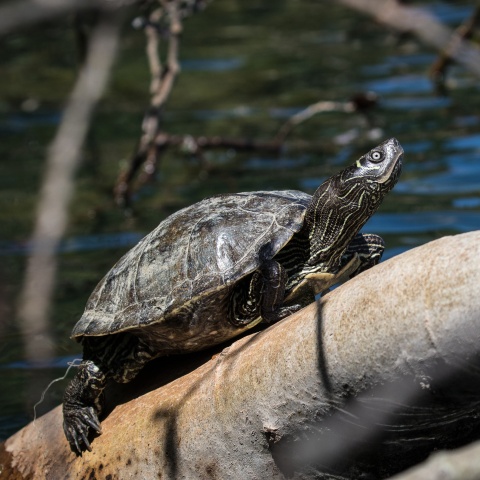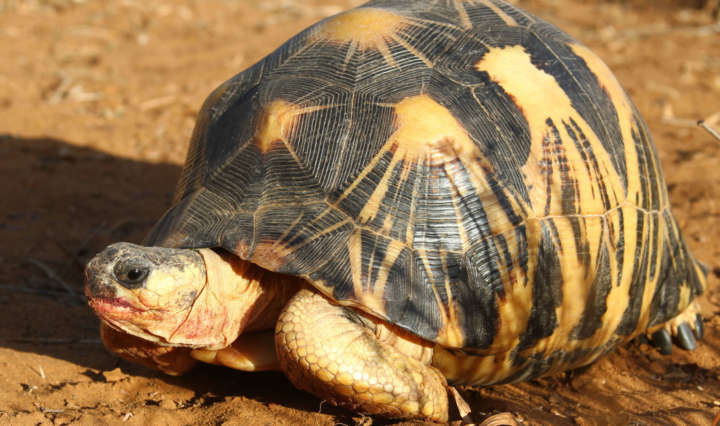A Woman’s Life Dedicated to Turtle Research
Senckenberg scientist Melita Vamberger is featured in the book “Women in Herpetology”
Turtle researcher Dr. Melita Vamberger of the Senckenberg Natural History Collections Dresden is featured in the newly published book “Women in Herpetology.” The volume for young adults compiles personal portraits of 50 women from 50 countries and regions who have dedicated their lives to the study of amphibians and reptiles. All proceeds from the book project will go toward a scholarship to enable students from underrepresented regions to attend international herpetological conferences.
The newly published book resulted from the “Global Women in Herpetology” project, founded by herpetologists Dr. Sinlan Poo (Taiwan), Dr. Itzue Caviedes-Solis (Mexico), and Dr. Umilaela Arifin (Indonesia). In 50 portraits, it tells the personal stories of female amphibian and reptile researchers working around the world in diverse fields such as conservation, ecotoxicology, and education. Turtle expert Dr. Melita Vamberger of the Senckenberg Natural History Collections Dresden conducts research on conservation genetics and ecology of the shell-bearing reptiles and is featured as a representative of her home country, Slovenia. In her contribution, she traces her personal path from a turtle-loving schoolgirl to an internationally active scientist.
For many years now, Vamberger has been conducting research in sub-Saharan Africa – an area inhabited by a large number of different turtle species. There, she studies the genomic basis for evolutionary adaptations of freshwater turtles that can survive in the desert. “Part of my current research also focuses on invasive species and their impact on ecosystems – one of the primary causes of biodiversity loss over the last hundred years,” reports Vamberger. “In my scientific work, I combine a wide range of methods, from laboratory expertise in population genomics to ecological field methods.”
With their book, the editors wish to encourage and inspire future generations of women in herpetology. In very practical terms, the first goal is to award scholarships to students, enabling them to attend the World Congress of Herpetology in 2024. Vamberger also wants to encourage others with her contribution. “I hope that my story can persuade at least one young person to follow this path, even if it is not the easiest,” says the researcher. “The adventure is worth the effort! Together, we can contribute to the knowledge about the changes in and loss of biodiversity and try to stop – or at least slow down – the climate change and biodiversity loss our planet is facing.”
Publication: Women in Herpetology – 50 Stories from Around the World, edited by Umilaela Arifin, Itzue Caviedes, and Solis Sinlan Poo, 335 pp., English. To order, go to: www.womeninherpetology.com





